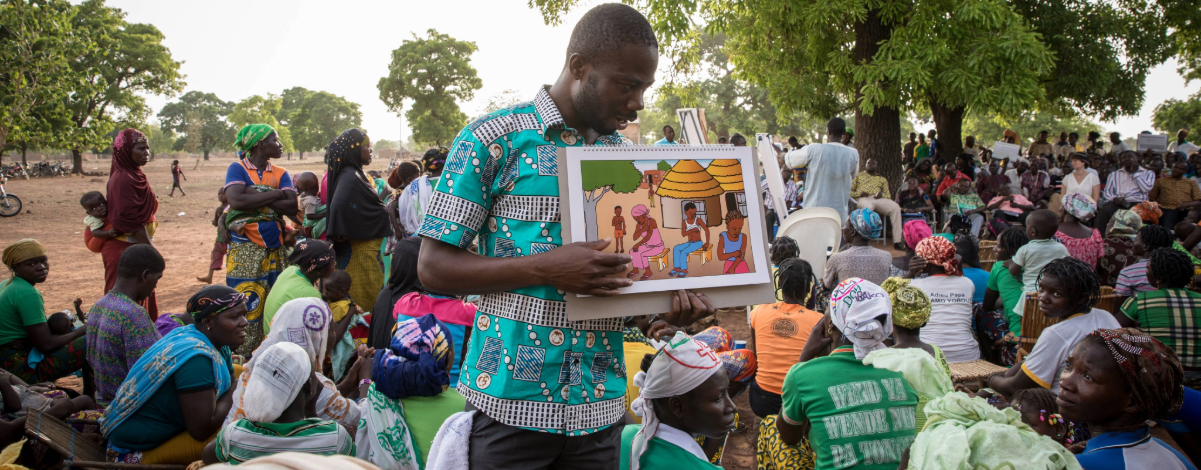You are here
Global Health Security: Working together to create a healthier, safer world
In today’s interconnected world, infectious diseases and other health threats can spread with alarming speed. Achieving global health security requires collaboration among world leaders to ensure that all countries have the capacity to prevent, detect and respond to public health emergencies. The CDC Foundation works with public and private sector partners to support and strengthen the global health systems that protect the health, safety and security of America and the world.
WHAT IS GLOBAL HEALTH SECURITY?
Global health security involves building strong, resilient public health systems throughout the world that can prevent, detect and respond to infectious disease outbreaks and other public health emergencies, wherever they occur.
In addition, the CDC Foundation has been supporting efforts to strengthen laboratories, surveillance systems, workforce and emergency management capabilities for many years. In addition to pandemic preparedness, the CDC Foundation supports research to improve our understanding of existing pathogens and new technologies to prevent their spread. The Foundation has prioritized expanding equitable access to vaccines, which will help strengthen global health security.
A MULTI-FACETED APPROACH
Our work in global health security encompasses five key areas:
Strengthening surveillance systems
To effectively address current and emerging health threats, countries must have strong, comprehensive surveillance systems capable of monitoring infectious disease cases, strains and outbreaks. The CDC Foundation works with international partners to enhance, expand and integrate surveillance systems. The CDC Foundation is collaborating with CDC around the world to establish and strengthen surveillance of vaccine preventable diseases, including meningitis, rotavirus, pneumococcus, measles, cholera, typhoid, diptheria/pertussis and HPV. In India, we partnered with CDC and the Bill & Melinda Gates Foundation to provide technical support to the Indian Council of Medical Research (ICMR) to develop and strengthen the country’s pneumococcal meningitis surveillance system.
The CDC Foundation also establishes and strengthens public-private partnerships to improve disease surveillance, as we have through the MenAfriNet Consortium. The MenAfriNet Consortium is an international partnership of public health organizations working to establish a regional meningitis surveillance network in sub-Saharan Africa.
Strengthening laboratory systems
Sustainable national laboratory systems and regional networks are critical for the detection, identification and reporting of emerging threats. The CDC Foundation works with CDC, regions/countries and partners to enhance the capabilities of laboratory systems to safely and accurately detect and identify pathogens causing outbreaks and epidemic disease. In Niger, the CDC Foundation is working to strengthen the capacity of Niger’s National Reference Laboratory to conduct integrated serosurveillance—a technology that can measure up to 100 disease-specific markers from a single dried bloodspot. The CDC Foundation has also supported efforts in Tanzania, Nigeria and Senegal to improve local laboratory capacity conduct malaria molecular surveillance, a critical tool to control the malaria epidemic in high burden countries.
Strengthening the global public health workforce
Public health workers are the cornerstone of maintaining global health security, and countries and regions must ensure a sufficient and competent workforce in order to identify and address health threats. Health officials and professionals, laboratory workers, epidemiologists, emergency management staff and others are responsible for both ongoing disease surveillance and are the first line of defense against outbreaks and epidemics when they occur.
Some of our ongoing projects to increase the capacity of the global public health workforce include field epidemiology programs in Saudi Arabia and Qatar and equipping a lab in Senegal to build workforce capacity in the region to monitor malaria drug resistance.
Strengthening emergency management systems
Functional emergency response operations are critical to ensuring timely and effective response to public health threats. This requires capacity and coordination within countries as well as regionally and internationally.
We are working with CDC’s Global Disease Detection Operations Center (GDDOC) in a project funded by Resolve to Save Lives that seeks to enhance global event-based surveillance (EBS) capacity in the African region. EBS looks at reports, stories, rumors and other information about health events that could be a serious risk to public health, with the goal of detecting unusual events that might signal an outbreak. This type of surveillance allows CDC and its partners to track any emerging public health threats and act quickly to contain and mitigate the impact.
Research
Public health research, particularly for priority, outbreak-prone pathogens, is critical in advancing our global health security strategies. Nowhere is this work more important than in the development of vaccines. Our Malaria Vaccine Implementation Programme (MVIP) in Kenya evaluated trials of what became the lifesaving RTS,S malaria vaccine. Diseases like Crimean Congo Hemorrhagic Fever Virus, Nipah Virus and avian influenza are global health threats, and yet vaccines do not exist. CDC Foundation is working with CDC to support vaccine development to prevent the spread of highly pathogenic viruses.
